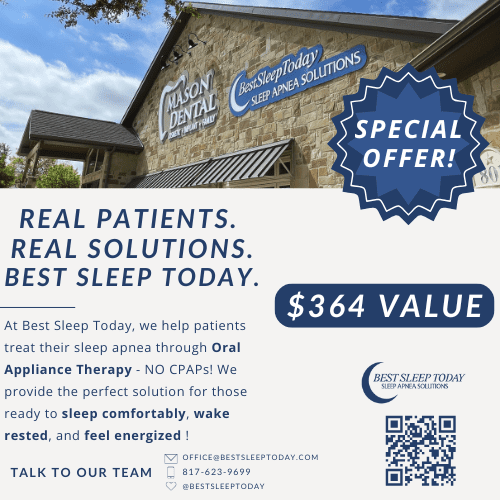Many Americans rely on their health insurance to provide access to medical care. However, basing health decisions solely on what insurance covers can have detrimental effects. This is especially true for those with chronic conditions like sleep apnea. While insurance is meant to assist with costs, it should not and can not dictate one’s health choices.
Sleep apnea is a common disorder where breathing repeatedly stops and starts during sleep. It affects over 30 million Americans and can lead to serious complications if left untreated. These include heart disease, diabetes, depression, and an increased risk of motor vehicle accidents. The most effective treatments are continuous positive airway pressure (CPAP) therapy, which uses a mask device to deliver constant airflow preventing pauses in breathing, and oral appliance therapy, which uses a custom-fitted mouthpiece to maintain an open airway during sleep.
Despite the effectiveness of CPAP and oral appliances, many insurance plans impose strict requirements on coverage for these therapies. Patients may need to trial other therapies first or prove the therapy works through compliance data. This delays access to the optimal treatment while symptoms persist. Worse, some plans deny coverage altogether based on pre-existing conditions or inadequate documentation from sleep studies.
The Common Mistake
When insurance coverage is uncertain or denied, many patients stop their treatment altogether. While the hesitancy is understandable, skipping CPAP or oral appliance therapy has dangerous health implications that compound over time. Untreated sleep apnea increases your risk of heart attack, stroke, and other cardiovascular diseases. It impairs concentration leading to higher rates of accidents. Non restorative sleep also takes a toll on mental health, potentially contributing to anxiety, depression and slower cognition. Forgoing medical treatments due to insurance concerns only allows these issues to spiral.
What Should You Do?
What steps can you take if insurance barriers affect your sleep apnea care? First, thoroughly understand your policy’s requirements for CPAP and oral appliance coverage. Verify if prior authorization is needed and which sleep study criteria must be met. Ask your doctor to clearly document medical necessity if there are any uncertainties.
If CPAP or oral appliance therapy is ultimately denied, appeal the decision. Citing supporting clinical evidence and letters of medical necessity from your doctor can help overturn the ruling. Also research patient assistance programs, which provide free or discounted CPAP machines, oral appliances, and supplies based on financial need.
Although challenging, take a proactive role maximizing insurance benefits for your care. The long-term health risks of untreated sleep apnea outweigh any short-term savings from avoiding therapy. Don’t let coverage limitations dictate your treatment choices. Partner with your provider to find solutions that fit your clinical needs and financial reality.
Quality sleep is the foundation for physical and mental well-being. Take control of your health by prioritizing effective sleep apnea treatment, regardless of what insurance covers. The consequences of delaying care pose too great a risk. You deserve restful nights and days no longer burdened by symptoms. With the right support and advocacy, you can find an optimal path forward in your sleep apnea journey.













